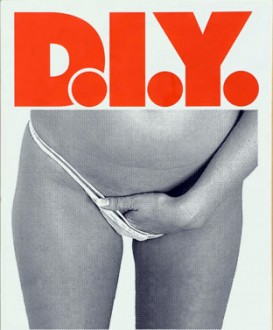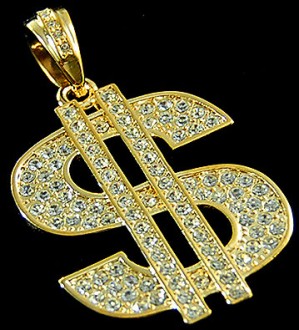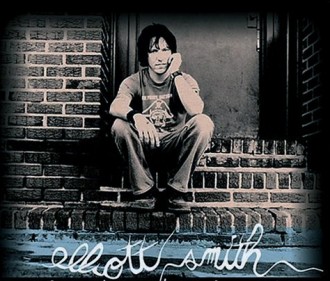Editor’s Blog: 2010
28 March 2010
Didn’t turn back the clock last night and was lucky (or unlucky) to catch yet another ghastly mistake by Louis Hamilton’s race engineer lose Louis the race, despite another brave attempt to catch his rivals. It just goes to show you that supreme talent alone can get you nowhere, slowly. The International Federation Of The Phonographic Industry (an association of the biggie record labels) will confirm this and further telll you that it costs $1 million to break a new band in the federation’s latest report (the report says that breaking a new band costs at least a million dollars, with a slightly simplified budget claiming $200,000 is paid out in an advance, $200,000 is spent on recording, $200,000 is needed for three promotional videos, $100,000 goes on tour support and $300,000 is pumped into marketing and promotion). This represents a seemingly solid argument against artists going DIY, but is it? This statement reminds of the BBC who insist that it genuinely costs mega-millions to run a radio station like Radio 1, when commercial stations can and do run on up to a two-third less bread. So where does the truth lie? In my view, somewhere in-between. But first it should be said that normal state of play translates into record companies recovering costs before their act earns a dime from sales, in other words, they retain the lion’s share of income from initial record sales. It’s not unusual for acts to end up owing money to labels… and for any corporate losses to be used to mitigate tax. So it’s not as black and white as would seem. The big question is whether, in this digital age, music acts need record companies. Well, I suppose that’s down to how big an act wants to become.
Let me give you an example: Katey Brooks has released an album that is good enough to top our albums of the year list for 2010. Brooks records on her own label, so is effectively ‘unsigned.’ She has a manager and through her many live performances has a growing but still modest fan base. She produced her own album with a little help from others and currently sells it via her own website. So, in writing, recording and live terms, she’s managed it on her own, and I detect a slight mistrust in the music industry to ‘take her to the next level.’ Brooks may want to be successful; in her terms, for more people to access her music, but not necessarily to become massive. However, for her to grow and continue recording needs marketing and it’s here that many ‘independent’ artists could use clout and influence, for example, to secure radio airplay. They also need their albums to be written about by the music press, and in glowing terms, especially if they are relative ‘newbies.’
A switched-on manager can of course help. With limited talent, young Ellie Goulding has already bagged a number-1 album, secured primarilly through the BBC’s Voice of 2010, subsequent Brit award and extensive play-listing. While her album that has received very mixed reviews, ‘marketing’ has worked for her, and on the basis of one mediocre single release. The cost of that success is unknown by me but I’m assuming extensive palm-rubbing. Now I do know that record companies like EMI have agreed marketing and distribution deals with acts on an album-by-album contract basis, but they have been lacking in the PR department (we receive nothing from EMI). I also know that Nanci Griffith handed over various responsibilities to Rounder Records after she found the responsibility of marketing and promotion too much to handle. What I’m suggesting here is that the million dollar spend could be reduced to a third by taking full responsibility for marketing and promotion, done well, and deducted equitably from record sales receipts - in effect, payment by results for talented artists that retain the responsibility for writing and recording records, while also retaining publishing rights.
There’s also an argument that marketing and promotion could be carried out by new and specialised companies on the same remuneration basis. And I don’t mean companies who send out reams of worthless paper and hard copy albums to endless lists of people who may or may not be interested. Shakenstir’s DPK (Digital Press Kit) is a new innovation that could be used by both artists and their promoters, and is suitable for radio and press (http://shakenstir.co.uk/alarm21/). This includes all the information the media needs, and a tick box to receive a full album download or hard copy, it’s dirt cheap and is delivered securely by e-mail. Shakenstir also has the facility to record live sessions (audio and visual) at a custom-built, university campus live performance facility, with an edited live audio version sent to over 120 Community Radio stations for airing - at no cost to the artist, who can take away the audio and visual recordings for sale. So, do artists need record companies? Yes, but under dramatically revised terms, i.e. no-win, no-fee. And if artists still require complete control, the DPK and live sessions are there - ready and waiting.
In last week’s Sunday Times Sean Adams of Drowned In Sound seemed to indicate that Elliott Smith was still struggling for public recognition when he died in 2003 : “It’s troubling to think that it took Simth’s demise in 2003, and the subsequent tributes from leading musicians, for most fans to discover him.” Sorry Sean, you are so wrong. I remember clearly covering his sold-out concert in Manchester in 1999 when over a thousand fans assembled to see and hear him, and the massive acclaim for his movie soundtrack songs. Elliot was a troubled man and fine musician, whose talents and recordings were recognised in most international markets. He then mentioned Sparklehorse in ‘the same breath’, another man (Mark Linkous) and band who also received international acclaim and sales from very fine records. Were either classified sales-wise in the same degree as Beyonce or Eminem?
No, of course not and because their appeal was not to the mass-market (although I would love to think so), but to music-lovers who are able to descrimate between the mediocre, highly-hyped and music with real intrinsic value, and that actually means something. However, Sean didn’t mention Jeff Buckley and GRACE that sold at levels well below Sony’s initial target of 600,000 in its first year, and the pressure on him to create a second album that did meet with corporate volume sale demands. Last year, we researched, compiled and presented a 3-hour plus Shakenstir Session radio special on Jeff, who recorded one of the greatest albums of all time. And therein lies the difference between Drowned and ourselves, and it’s fundamentally our passion for the greatest modern music - new and old - which is translated into what we write about and what we play.
Page: 1 2 3 4 5 6 7 8 9 10 11 12 13 14 15 16 17 18 19 20 21 22 23 24 25 26 27 28 29 30 31
|
|

|

Soil |
LATEST GALLERY IMAGES

Where Israel Goes, Misery Follows 
The Kanneh-Masons |
|
|




